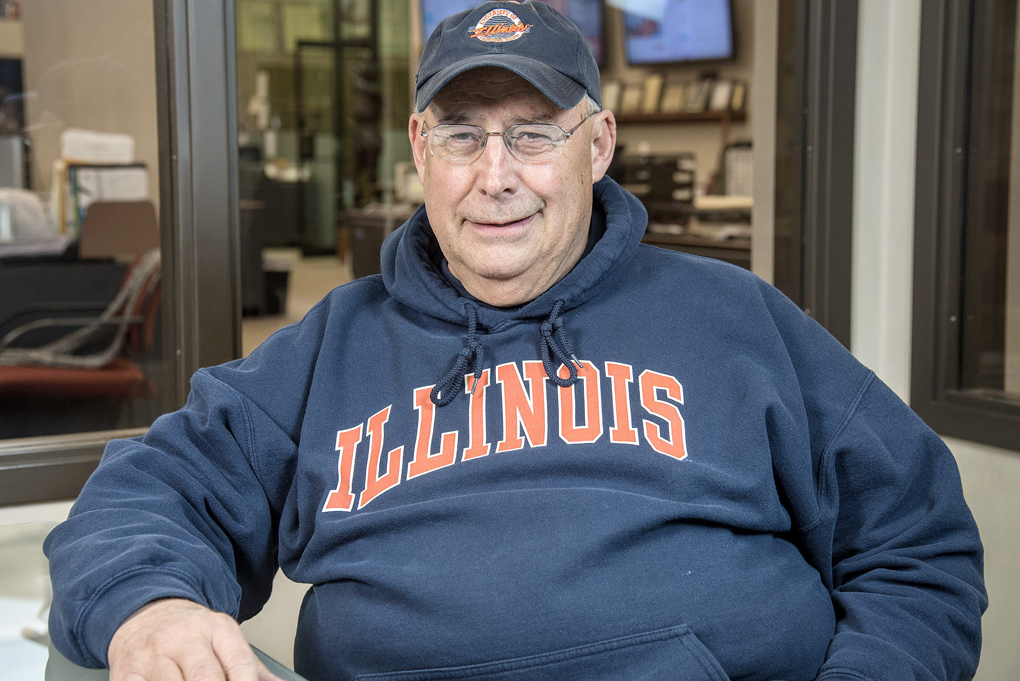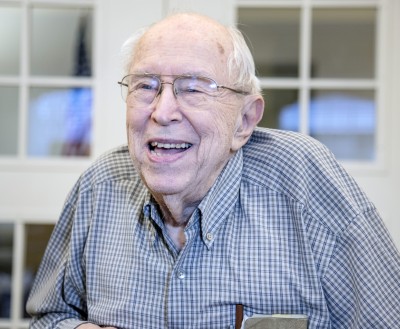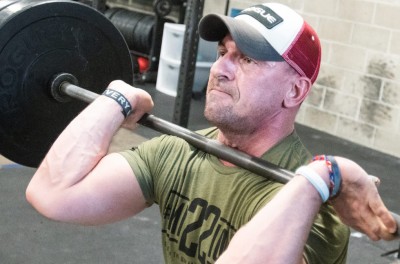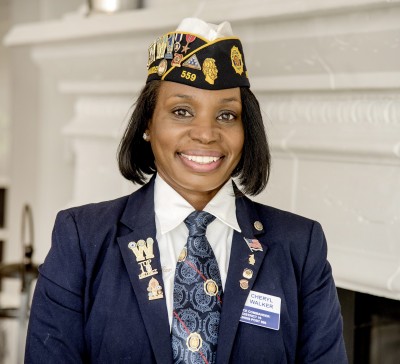Larry Martin
By Paul Wood

Photo By Rick Danzl/The News-Gazette
CHAMPAIGN — Master Sgt. Larry Martin was stationed 1,500 meters from the demilitarized zone and North Vietnam in an artillery unit — “not in the rear with the gear,” as he jokes.
He’s proud of his Army service. “I’m glad I did it” — but “probably wouldn’t do it again. It did not define my life.”
The Missouri native was in the first Vietnam draft, late in 1969.
“That’s something you don’t forget,” Martin said.
His number was 41, so he had some expectations that he might head off to Vietnam.
At 19, he took his physical. He ended up spending two years in the Army and 24 years in the National Guard.
After basic and specialized training, he was sent to within shooting distance of the demilitarized zone.
Martin was assigned to manning an M110 8-inch howitzer, the largest self-propelled howitzer in the Army’s inventory.
Its 208-pound shells could travel more than 12.5 miles, far enough to land in North Vietnam from Con Thien, Martin said.
Sen. John McCain’s father was a rear admiral at the time and the commander in chief in that area.
“The week of Christmas 1970, we saw a helicopter coming down and dropping people off at night,” Marin said.
They couldn’t actually see the people dropping off the copter, but suspected it was North Vietnamese troops. The unit reported it up the chain of command.
“The third night, we were ready,” he said. “We actually shot down a Russian helicopter.”
After Martin and two others spotted the helicopter, the artillery used multiple timed fuse shells that went off as a burst from four guns the next night — almost 900 pounds of steel. Radar had picked the copter up and directed the guns as the copter was starting to land.
McCain congratulated them on the destruction of the copter, then said, “You will never speak of this.”
For 35 years, that was largely a secret.
In another incident, U.S. soldiers could see a North Vietnamese flag opposite them. They made quick work of it with artillery shells.
But there were hard times. A cousin was in the Battle of Ripcord.
“People will tell you we never lost a battle in Vietnam, and that is not correct,” Martin said.
The 23-day battle incurred losses of U.S. forces that were so heavy that officers began asking for volunteers from other units to reinforce the firebase.
“They couldn’t sustain the casualty loss. My cousin Danny was wounded and sent back to Japan,” Martin said.
After Danny returned from Japan, the cousins ended up spending a few days together. They were later serving about 4 miles apart and never saw each other for the next months.
Martin spent his first seven months in the artillery, then after a return home on leave, he came back to work in an amnesty program for drug rehabilitation.
“I ran the program. I wasn’t in the program. There was a big drug problem in 1972,” Martin said.
He said that around 1967, there were many gung-ho soldiers in Vietnam.
“By 1969, 1970, the tide turned. Nobody wanted to be the last one killed for a lost cause,” Martin said.
Then, in the National Guard, he was deployed to Alaska, Norway and the Philippines — in 1988, a high-tension time.
After several years, he earned a master’s degree and taught at Parkland College, then taught online at the University of Phoenix for six years while working as a successful sales rep and manager, including at Campbell Soup, Herff-Jones and Meadow Gold Dairy.
He’s married and has one son.
Do you know a veteran who could share a story about military service? Contact Paul Wood at pwood@news-gazette.com.
Read more stories from local veterans:
 Bob Bokenkamp
SAVOY — In taking several islands in the South Pacific, Bob Bokenkamp, a retired associate dean of students, said Americ …
Bob Bokenkamp
SAVOY — In taking several islands in the South Pacific, Bob Bokenkamp, a retired associate dean of students, said Americ …
 Mike Sandone
URBANA — About 22 military veterans commit suicide every day. Marine Sgt. Mike Sandone, 40, is a physical fitness expert …
Mike Sandone
URBANA — About 22 military veterans commit suicide every day. Marine Sgt. Mike Sandone, 40, is a physical fitness expert …
 Cheryl Walker
URBANA — Newly elected Cheryl Walker is the first female commander of the American Legion’s 19th District and, with husb …
Cheryl Walker
URBANA — Newly elected Cheryl Walker is the first female commander of the American Legion’s 19th District and, with husb …